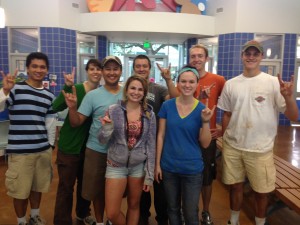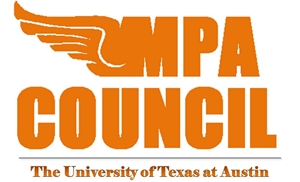One of the things I love to do is to volunteer. For me, there is nothing like giving back and helping make a better tomorrow, one little act at a time. Perhaps this may sound too ideal, esoteric, or even ethereal. However, I speak from experience because if not for people who have helped me along the way and paid it forward in their time, I would not be where I am today. So when I joined MPA Counciland learned that community service is one of its pillars, I could not have been happier to be part of such an organization.

In the past few weeks, MPAC has had two community service projects. The first one was with Capital Area Food Bank (CAFB), where we moved, organized, and sorted 6,500 pounds of food in about three hours. To put it in context, this is equal to 5,625 meals that the agency provides in Central Texas. CAFB works with several local agencies that help distribute the food to combat hunger in the region. I can’t believe how much food we sorted in the time we were there. We worked in an assembly line and had an efficient process of packaging foods. When the agency coordinators announced the impact of our work, there was a sense of pride in the group, because we knew we made a difference.

The second project we had was a visit to the Austin Animal Center (AAC). This was a fun job. How could it not be? We walked dogs every 15 to 20 minutes. From the small young dogs to the big and rowdy ones, we had a chance to take the dogs out for exercise and show them some affection. It was a good way for us to also get a work out and reduce stress levels in the process.

I will not forget the last dog I walked, which was a German shepherd. She was big, strong, and energetic. At some point, it was hard to tell whether I was walking her or she was walking me. I had to tie the leash around my waist a few times for added support. Needless to say it was a funny sight. By the time we left AAC, we had mud everywhere from walking and playing with the dogs. It was a good experience and one that really put smiles on our faces.
One thing I really appreciate from these events is that it shows how MPAC is committed to social engagement. It is not just an organization that promotes accounting and the career opportunities therein. It is much more than that. When it started to rain during the past AAC event, the volunteer coordinators gave us the option to leave early. A fellow student turned to me though and said, “I’d like to help some more if I can.”
That’s the spirit of service and I could not even be more proud to have folks share the same passion when it comes to giving back. I’m definitely looking forward to the future projects we’ll have.





